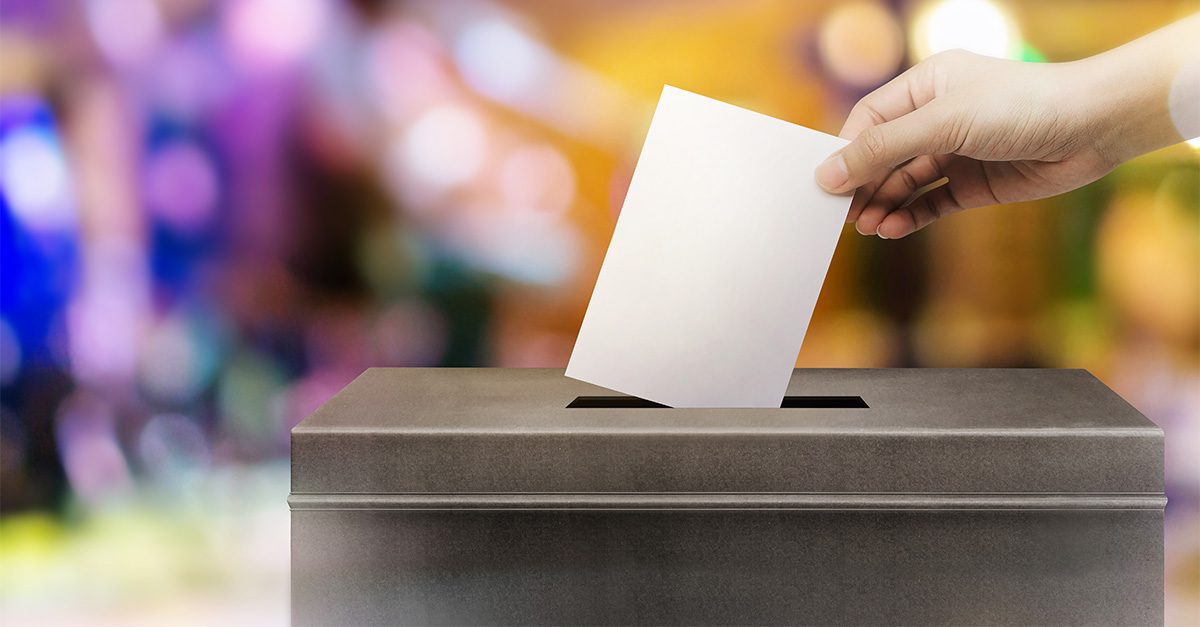


Get a free copy of Parental Rights & Education when you subscribe to our newsletter!

Election Day is next Tuesday, and there are a number of important constitutional amendments and proposals on state ballots that Christians and conservatives looking to vote their values should be concerned about. They include the following:
In Arkansas, a ballot proposal on religious freedom known as Issue 3, or the Arkansas Religious Freedom Amendment, would prohibit the state from burdening religious exercise, even if the law is one of general applicability.
Originally known as Senate Joint Resolution 14, the purpose of the amendment as stated by the legislature is “to provide that government may never burden a person’s freedom of religion except in the rare circumstance that the government demonstrates that application of the burden to the person is in furtherance of a compelling government interest and is the least restrictive means of furthering that compelling government interest.”
The pivotal section says,
“Except as provided in subsection (b) of this section, government shall not burden a person’s freedom of religion even if the burden results from a rule of general applicability.”
During the COVID lockdowns, Arkansas Gov. Asa Hutchison, R, issued an executive order instructing churches to limit the number of worshippers so they could maintain a distance of six feet from other worshippers.
Other states faced far more stringent restrictions. However, numerous court cases, including at the Supreme Court, dealt with religious exercise versus government interest after COVID. The primary legal reasoning in the Supreme Court’s decision in Roman Catholic Diocese of New York v. Cuomo and several follow-on cases was that any laws enforced must be neutral and generally applicable. In other words, the Supreme Court allows laws to burden religious exercise only if all organizations, both religious and secular, are treated the same.
The Arkansas amendment goes beyond the Supreme Court ruling and seeks to restore the requirement for burdening religious exercise to the previous compelling interest standard, thereby giving religious liberty a higher status than other activities, as indicated by its inclusion in the First Amendment.
Oregon Measure 114, also known as the Changes to Firearm Ownership and Purchase Requirements Initiative, would require residents to apply to receive a permit to purchase a firearm. In order to receive a permit, an applicant must:
The measure also limits magazine capacity to 10 rounds, meaning guns with larger magazines would need to be altered to comply with regulations. Moreover, gun owners with firearms capable of holding a higher number of rounds would have to prove they purchased their gun before the amendment was passed.
The murder rate in Portland, Oregon’s largest city, rose 241 percent from 2019 to 2021 and experienced a record number of homicides last year. There have been more than 1,000 shootings in the city this year alone. Supporters and critics differ on the effect this amendment would have on the horrifying trend.
John Hummell, district attorney for Deschuttes County, said, “This is a grassroots effort of people rising up and saying we’re tired of all our neighbors getting shot and killed.”
Kevin Starrett, the executive director of Oregon Firearms Federation, argues that “Ballot Measure 114 will virtually eliminate your ability to protect yourself and your family. You may not obtain a firearm for your protection without the permission of your local police chief or sheriff…At a time when violent crime is skyrocketing and police are not responding, this measure will have a devastating effect on our poorest communities and put those in high crime areas in even greater jeopardy.”
Stretched-thin police and sheriffs are opposing the measure as well. The Oregon Sheriff’s Association says it will burden offices.
Brad Lohrey, Sheriff of Sherman County, said that his office, with only six employees, does not have the state-approved gun range or personnel to provide training courses. “It is impossible for us to do what they’re asking us to do,” he stated.
Critics also note that if passed, the initiative, though it is being put before voters rather than the legislature, will likely be challenged in federal court as unconstitutional, given the Supreme Court’s ruling this past summer on a similar set of conditions placed by the State of New York on a citizen’s Second Amendment right to own and bear a firearm.
In the case of New York State Rifle & and Pistol Association v. Bruen, the majority, in a 6-3 decision, ruled that “the constitutional right to bear arms in public for self-defense is not ‘a second-class right, subject to an entirely different body of rules than the other Bill of Rights guarantees.'”
Justice Clarence Thomas, who wrote the opinion, further explained that licensing and permitting schemes like that in New York infringe on Americans’ protections under the Fourteenth Amendment “in that it prevents law-abiding citizens with ordinary self-defense needs from exercising their right to keep and bear arms.”
In voting for the “Born-Alive Infant Protection Act,” or LR-131, voters will decide whether or not doctors must provide medical care for infants born alive after an abortion. LR-131’s ballot question states:
“An act adopting the born-alive infant protection act; providing that infants born alive, including infants born alive after an abortion, are legal persons; requiring health care providers to take necessary actions to preserve the life of a born-alive infant; providing a penalty; providing that the proposed act be submitted to the qualified electors of Montana; and providing an effective date.”
Bill sponsor Rep. Matt Regier, R, said the bill’s purpose is to protect life. “It’s a simple bill of, Are we going to protect infants that are born alive for any reason, not just a botched abortion, but any infant that’s born alive? Do they deserve the same medical services that you and I are afforded, what’s medically appropriate and reasonable?”
Opponents claim it could require physicians to provide treatments that will only lead to suffering. Reiger disputes such opposition, citing the bill’s language of “medically appropriate and reasonable” treatments. He explained, “To me that just defies common sense…of what is medically appropriate and reasonable, and if you’re going to say trying to revive a terminally ill baby — that’s not medically reasonable. That seems pretty straightforward.”
Nevada Question 1, the Equal Rights Amendment, would add a section to Article 1 of the state’s constitution that states: “Equality of rights under the law shall not be denied or abridged by this State or any of its political subdivisions on account of race, color, creed, sex, sexual orientation, gender identity or expression, age, disability, ancestry or national origin.”
The amendment’s supporters claim the amendment is about equality. Senate Majority Leader Nicole Cannizzaro, D, stated,
“The time is NOW to show the nation that we, as Nevadans, lead when it comes to equality for all. At every decision point in history, the quest for equality has met with stiff and obstinate opposition. Equal justice has NEVER been given. We must persist in this effort to achieve equal rights. There are nearly 30 states that have passed or are considering state equal rights amendments to their constitutions. Most provide for the equality of rights to not be abridged or denied because of sex. The measure before you today clarifies that the equality of rights should not only be based upon the sex of an individual, but on the wholistic aspects of all persons, which includes the mind, body, and spirit.”
Opponents claim the amendment would result in inequality for religious objectors to LGBT ideology, as well as require taxpayer funding of abortion.
Officials for Alliance Defending Freedom (ADF), for example, say that the amendment will
“destroy the equality and opportunities women have worked so hard to achieve in education, athletics, and business. By enshrining ‘gender identity’ in the state constitution, it would mandate that men who self-identify as women be allowed to compete for spots on female sports teams, women’s scholarships, and other academic and sports-related opportunities specifically for women.”
ADF officials also warn that religious schools and organizations would be prohibited from acting on their beliefs about marriage and sexuality if they were to receive government funding, while medical professionals would be forced to violate their conscience on issues like gender-affirmation treatments and abortion.
Amendment 2, or the Legislative Approval of the State Board of Education Rules Amendment, would require any rules passed by the West Virginia Board of Education to be reviewed by the state legislature.
The amendment would change Article XII, Section 2, of the West Virginia Constitution to say:
“Under its supervisory duties, the West Virginia Board of Education may promulgate rules or policies which shall be submitted to the Legislature for its review and approval, amendment, or rejection, in whole or in part, in the manner prescribed by general law.”
State Sen. Patricia Rucker, R, supports the amendment, saying, “It’s actually making certain for those who elected us that we are overseeing and holding [the Board of Education] accountable, and that the laws that we do pass do get applied correctly.”
Opposing the amendment is Mike Hall, president of the West Virginia Board of Education, who said, “The learning is going to be inconsistent. It’s going to be inconsistent when you have a Legislature that changes every two years. Where is the consistency?”
There are also several proposals that voters will decide next Tuesday involving abortion.
Ready to dive deeper into the intersection of faith and policy? Head over to our Theology of Politics series page where we’ve published several long-form pieces that will help Christians navigate where their faith should direct them on political issues.
